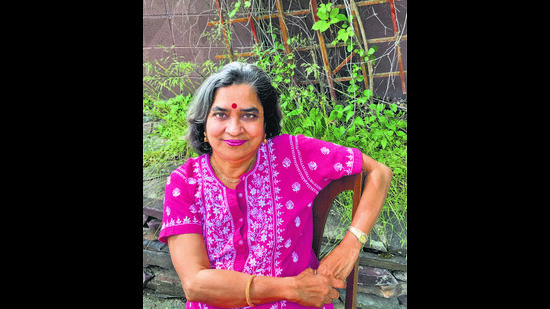Review: On the Edge edited and translated by Ruth Vanita
On a collection of stories, originally written in Hindi and published between 1924 and 2022, that explores different facets of same sex desire and relationships
In India, the conversation around sexuality and even sex has been taboo for a long time, and that conservative mentality is also reflected in literature. But there have always been individuals who pushed the limits and wrote stories on the subject. Ruth Vanita’s On the Edge comprises just such a collection of 16 stories, originally written in Hindi and published between 1924 and 2022, that explores different facets of same sex desire and relationships.

In 1924, during the freedom struggle, Gandhian Pandey Bechain Sharma “Ugra” wrote Chocolate for the biweekly literary and political magazine Matvala. As it talked about desire between two men, the short story was both praised and criticised, and in the same year, the author also wrote Discussing Chocolate, which is featured in this volume. The latter piece is set in a rail compartment where passengers are discussing the original story, Chocolate. The conversation reveals different aspects of society and turns the focus on the complex relationship between orthodox values and reality and the necessity to write such narratives.

When it comes to writing about same sex intimacy, relationships between men often capture more space in the literary world than those between women. In 1947, Asha Sahay changed that by coming out with Ekakini, which, as per the translator, means a woman who is alone, on her own, with the word having more depth than just meaning “single woman”. The excerpt included in this collection lays out the story of Arati and Kala in great detail. As they grow closer, Kala realises that Arati is still in love with her childhood companion Vijay and wishes to marry him. Kala tries her best to explain that her love for Arati is much more than what any man can offer. The story delicately explores layered desire and its manifestations. Vision, originally written as Nazar (1983) by Ruth Vanita herself, similarly explores how individuals deal with their desires according to their situation. Based on the author’s experience of visiting a New Delhi school for girls with visual impairment, the story presents the intersection of same-sex desires with disability. The narrator visits the boarding school with her companion Shaku-di, who wants to write an article about its living conditions. Soon, they realise that though some of the girls struggled academically, they were quite happy because of the deep bonds they had formed with each other. Their intimacy, which the narrator seems to yearn for, leads her to speak to Shaku-di about leaving that part of their private lives out of her article. The story also subtly touches on the reality of queer individuals stuck in unhappy heterosexual marriages seeking solace in observing other queer people living their lives freely.
Rajasthani literary giant Vijay Dan Detha’s A Double Life is also part of this collection. His adaptation of folktale elements is what makes the story even more mystical. On the other hand, Kinshuk Gupta’s Mrs Raizada’s Corona Diary delves deeper into reality and looks at issues that plague traditional families and destroy multiple lives at once. Here, during her lonely stay at a hospital after contracting Covid, the central character revisits her decision to reject her son because of his sexuality.
Apart from covering the different dimensions of same-sex desire and how its depiction has changed with time, this book is also a masterclass in translation. The introduction leads the reader to understand the care and sheer artistry with which these stories have been translated, with special effort being made to keep the original intent and messaging intact. Ruth Vanita’s detailed footnotes allow the reader to grasp the context in which these stories have been written and explain how several untranslatable words have been used with finesse.

Finding such stories from history and translating them is a kind of activism as it helps the Indian queer community trace their lives in these narratives – something that is absent in the mainstream.
This could be seen as a companion volume to Same-Sex Love in India (2000) edited by Ruth Vanita and the late Saleem Kidwai, that was cited in the judgment overturning Section 377 and proved conclusively that homosexuality was not imported from the West. On the Edge too allows us to travel through time and observe how writers touched upon a forbidden topic in conservative and overwhelmingly heteronormative Indian society. That Ruth Vanita has also ably translated all these delicate explorations of human emotions around desire makes this book a stellar achievement.
Chittajit Mitra (he/him) is a queer writer, translator and editor from Allahabad. He is co-founder of RAQS, an organization working on gender, sexuality and mental health.






